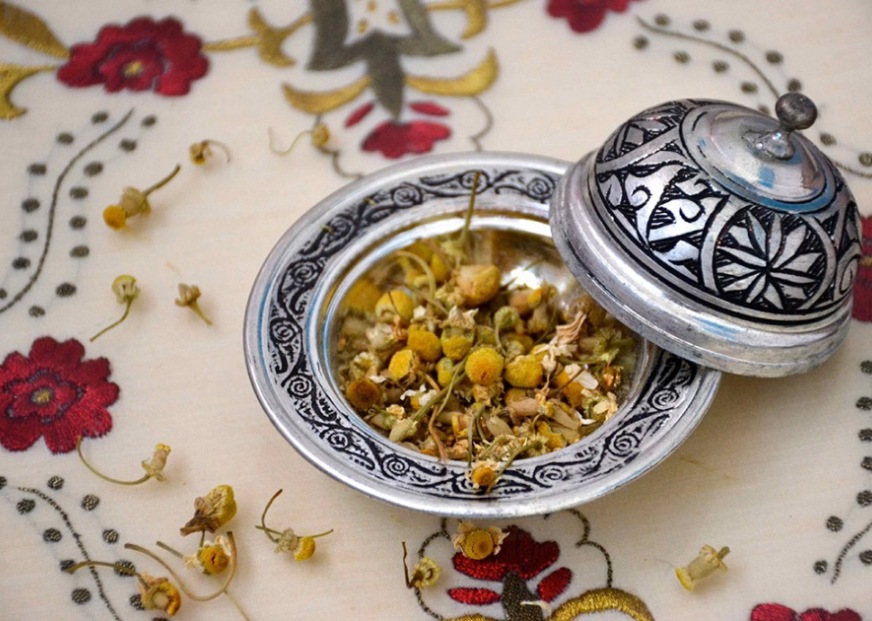3 MIN
TRAVEL TIPS
Greek tea

 Chamomile tea
The word means in Greek apples from the ground. From March to June chamomile grows in abundance on our farm. Traditional harvesting time has always been a week after Easter, when the properties of the chamomile are at their peak. We have to pick it up early in the morning, before the sun gains power.
In Greece we use chamomile as an evening tea that gives a relaxing feeling or to soothe a bellyache. We use it also to clean the skin, especially when it is irritated. When our baby’s have belly cramps we mix it with olive oil and massage it onto our babies bellies. Believe me, it works every time. Chamomile has anti-oxidant, anti-inflammatory and anti-cancer properties. We prepare chamomile tea the same way as mountain tea.
Sage or Salvia tea
In Greece we infuse sage to make a nice herbal tea. However you can’t keep the sage for longer than 20 minutes in the teapot as the taste will become bitter and unpleasant. This sage herbal tea has been used since ancient years for its medicinal properties. In Greece we use sage in cooking because the bitter and smoky flavor of the leaves adds an interesting taste to dishes we’re preparing.
Chamomile tea
The word means in Greek apples from the ground. From March to June chamomile grows in abundance on our farm. Traditional harvesting time has always been a week after Easter, when the properties of the chamomile are at their peak. We have to pick it up early in the morning, before the sun gains power.
In Greece we use chamomile as an evening tea that gives a relaxing feeling or to soothe a bellyache. We use it also to clean the skin, especially when it is irritated. When our baby’s have belly cramps we mix it with olive oil and massage it onto our babies bellies. Believe me, it works every time. Chamomile has anti-oxidant, anti-inflammatory and anti-cancer properties. We prepare chamomile tea the same way as mountain tea.
Sage or Salvia tea
In Greece we infuse sage to make a nice herbal tea. However you can’t keep the sage for longer than 20 minutes in the teapot as the taste will become bitter and unpleasant. This sage herbal tea has been used since ancient years for its medicinal properties. In Greece we use sage in cooking because the bitter and smoky flavor of the leaves adds an interesting taste to dishes we’re preparing.
 I personally love experimenting with flavors, and as much as I respect tradition I also love mixing flavors that are unusual to our traditional kitchen. My suggestions would be to try the sage leaves in combination with Lemongrass…
I personally love experimenting with flavors, and as much as I respect tradition I also love mixing flavors that are unusual to our traditional kitchen. My suggestions would be to try the sage leaves in combination with Lemongrass…
 Melissa…
Melissa…
 …or Lavender!
…or Lavender!
 Whatever tea you choose, I hope it keeps you warm and happy!
Whatever tea you choose, I hope it keeps you warm and happy!
Article by Katerina Sakelliou


